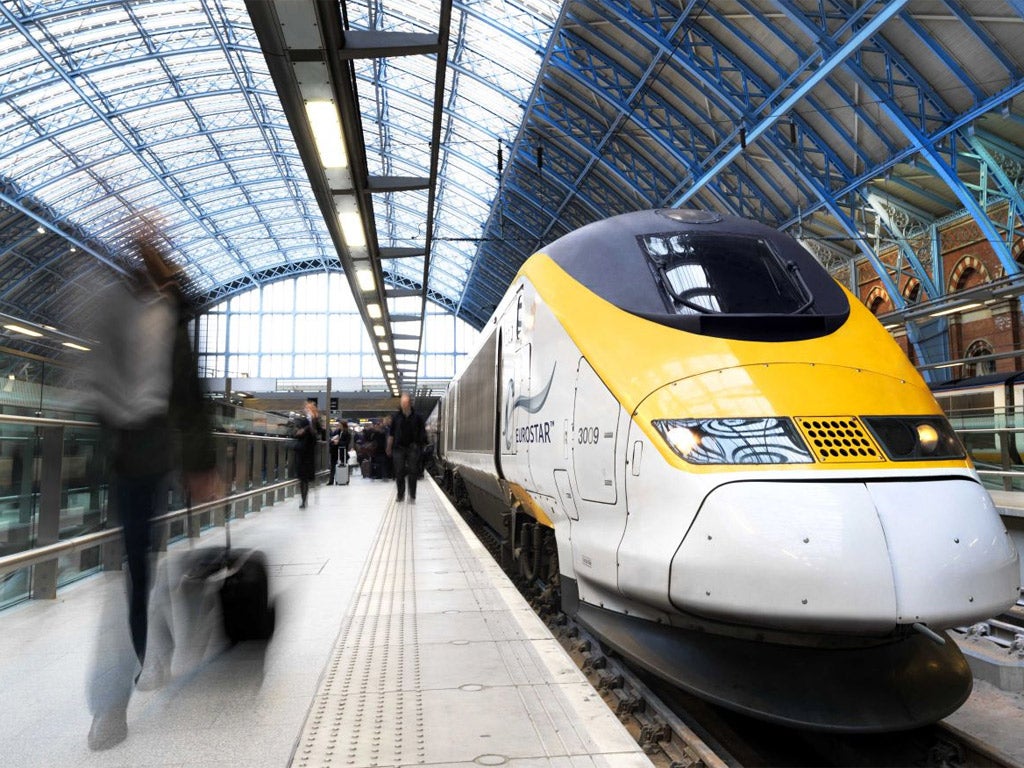Gavels fly in the taxpayer auction of the century
The Treasury says taxpayers should not own services that can be sold. Eurostar is the first lot to go under the hammer, but who will be next?

Undeterred by the bargain basement price at which it sold the Royal Mail, the Government has now opened Britain's front yard for a sale of £20bn of taxpayer-owned assets.
Eurostar leads the charge, with a disposal of the Government's 40 per cent stake in the cross-channel train company expected to fetch in the "low hundreds of millions" of pounds. But many more state-owned services are being scrubbed up and fatted for auction.
In the case of Eurostar, it is hard to judge who the potential buyers might be given that, even after splashing out all that money, France's state rail company, SNCF, would retain the majority shareholding and therefore effective control of Eurostar. That may deter the likes of Germany's Deutsche Bahn, although financial buyers like sovereign wealth funds or pension funds may be interested. The UK's stake is technically held by London & Continental Railways, the company that was behind the Channel Tunnel Rail Link connecting the capital to the Kent coast. Also known as High Speed One, it is now operated by a Canadian consortium, leaving LCR as essentially a property company, with land around London's Stratford and King's Cross.
Royal Mint: Reserve price £200m
Plans to privatise the Royal Mint, which manufactures coins for the UK and over 50 other countries, have been on the political agenda for some time now.
The company, which can trace its roots back to 886, is based in Llantrisant in South Wales and employs more than 900 people. It can produce 90 million coins and blanks a week - almost five billion coins a year.
If it is privatised, all of the UK's currency would then be privately made as bank ;notes are produced by De La Rue. The Labour government started the sell-off ball rolling in 2009 but never finished it.
NATS: Reserve £300m
NATS – or the National Air Traffic Services – was founded more than 50 years ago to bring together Britain's military and civil Air Traffic Control services under one roof. The company was part privatised in 2001 but ran into difficulties with the downturn in international air travel after the 11 September attacks on the US and needed to be bailed out by Government and City money. Last month, Thomas Cook, TUI Travel, Lufthansa and Virgin Atlantic sold down their stake in The Airline Group, which owns 41 per cent of the air traffic controller, to the pension fund of university staff.
Channel Four: Reserve £500m
From the first lesbian kiss to be screened on primetime television to Jade Goody's race row on Big Brother, Channel 4 has had its fair share of controversy since launching in 1982. Created as a commercially funded yet state-owned alternative to the BBC, the station now makes revenues of about £1 billion a year and has £200 million in cash reserves leading some experts to estimate it could be worth up to £1.5 billion. John Major is believed to have considered privatising Channel 4 in the nineties as did Gordon Brown more recently. But, the rennaisance of ITV under Adam Crozier means a sale is once again back on the agenda.
The Met Office: Reserve £100m
You'd have to be Michael Fish not to predict a government sale of the country's leading weather forecaster. Despite being owned by the state, the Met Office already uses private sector style management: witness the near-£1m in bonuses awarded to staff for getting forecasts right last year.
Chief executive John Hirst will doubtless hope for a privatisation.He could double last year's £185,000 pay and bonuses in a sale to a deep-pocketed private equity investor.
Competition is getting tougher for the Met Office though, with fleet-footed rivals like the Press Association snapping at its heels.
Join our commenting forum
Join thought-provoking conversations, follow other Independent readers and see their replies
Comments
Bookmark popover
Removed from bookmarks